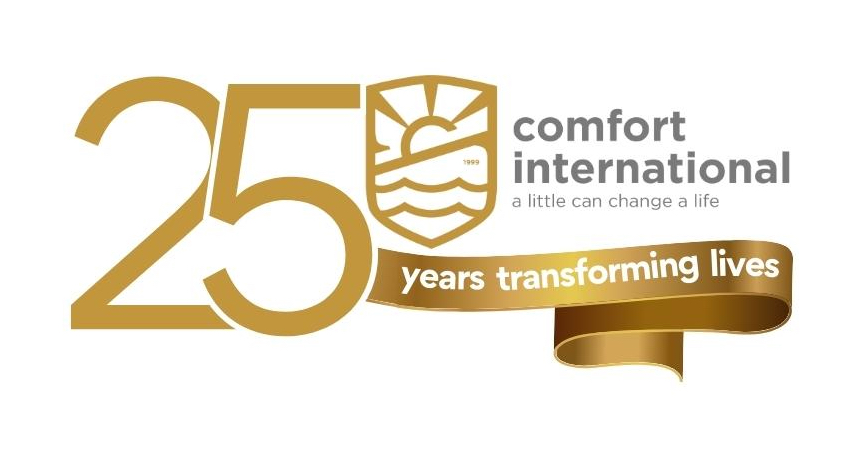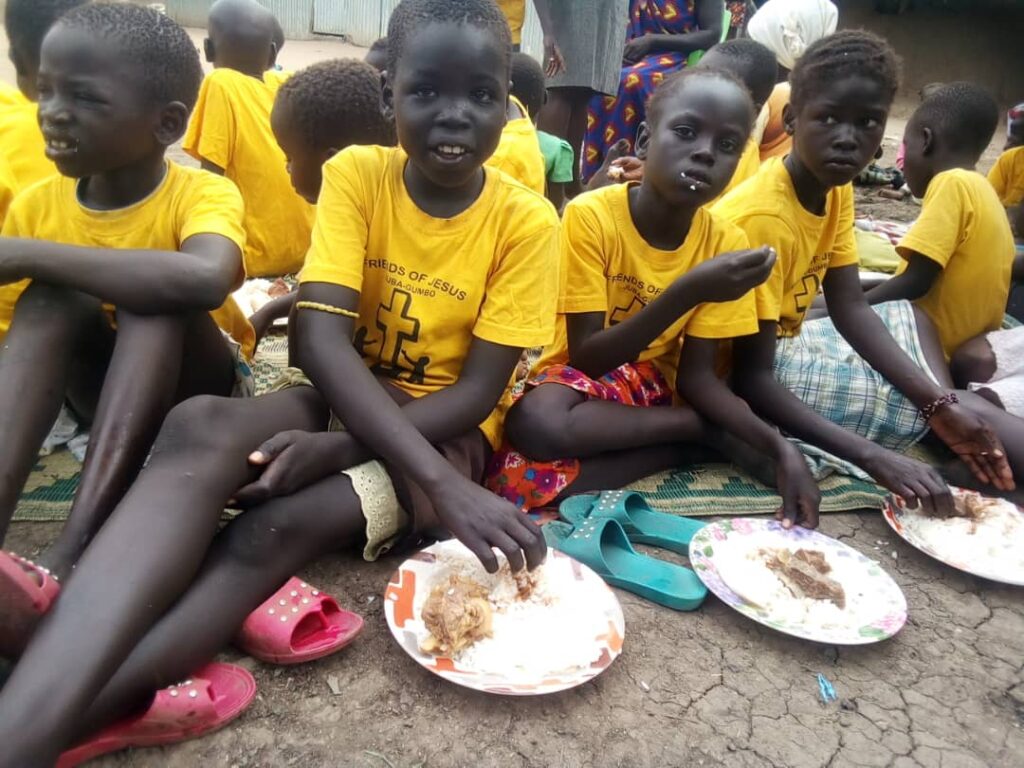The Juba Street Kids Project has been working since 2019 to support vulnerable children and families in the Gumbo district of Juba in South Sudan, where poverty and war is a way of life. The past year has presented extreme challenges in the way of natural disasters, intense conflict, food insecurity and rising prices exacerbated by the Covid-19 pandemic.
Despite these challenges, we have received wonderful reports of how the project is changing the lives of project members for the better. 52 children have been supported on the project this year as well as the parents/guardians of these. Two children have been enabled with the support of the project to integrate fully with relatives and no longer need the support of the project. We will shortly be looking at taking on new children to replace those who have graduated.
The project has had 5 main objectives over the last 12 months and we have received reports of the progress of these:
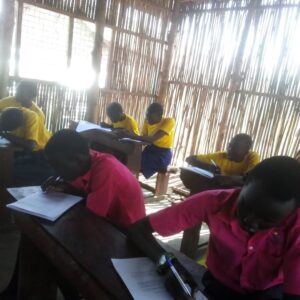 1) Education
1) Education
100% of the children who were on on the project at the start of 2022 are attending school. There has been considerable disruption of education in South Sudan with schools closed for many months. However, things are back on track and project children continued to receive home visits from teachers and learning support from the project whilst the schools were closed. Of particular celebration is the first child on the project to attend secondary school (see main picture at top – Jima is ninth from left in front row holding his books). Accessing secondary school is notoriously difficult in South Sudan. The biggest challenge for education is the rising cost of schools. We continue to seek sponsors to support this vital need.
2) Food and clothes
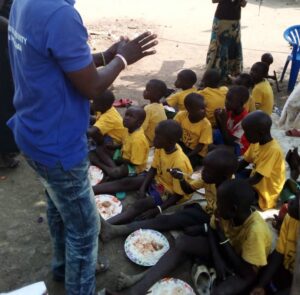
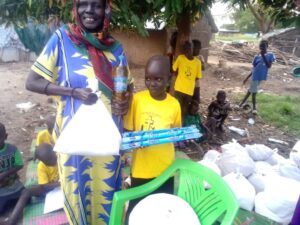 In 2021 monthly food prices rose between 18.4% and 36.8% year on year by month. Despite this, food has been supplied, both through the project activities and through distribution to the project children’s guardians/parents. Clothes continued to be provided, especially footwear. Maintaining good clothing adds to the dignity of the children and reduces any marginalisation of poorer children.
In 2021 monthly food prices rose between 18.4% and 36.8% year on year by month. Despite this, food has been supplied, both through the project activities and through distribution to the project children’s guardians/parents. Clothes continued to be provided, especially footwear. Maintaining good clothing adds to the dignity of the children and reduces any marginalisation of poorer children.
3) Accommodation
This has been an area in which the project team have worked tirelessly in the midst of natural disasters to ensure no children were left homeless. Over 2021 a series of natural disasters hit the area. Many homes were destroyed by flooding and storms. Emergency support and longer term solutions were given through repairs, replacement home rental support, and negotiations with land owners for land availability to site replacement homes. In some cases, the project team with help from skilled workers bought timbers, roofing and other materials and rebuilt homes themselves.
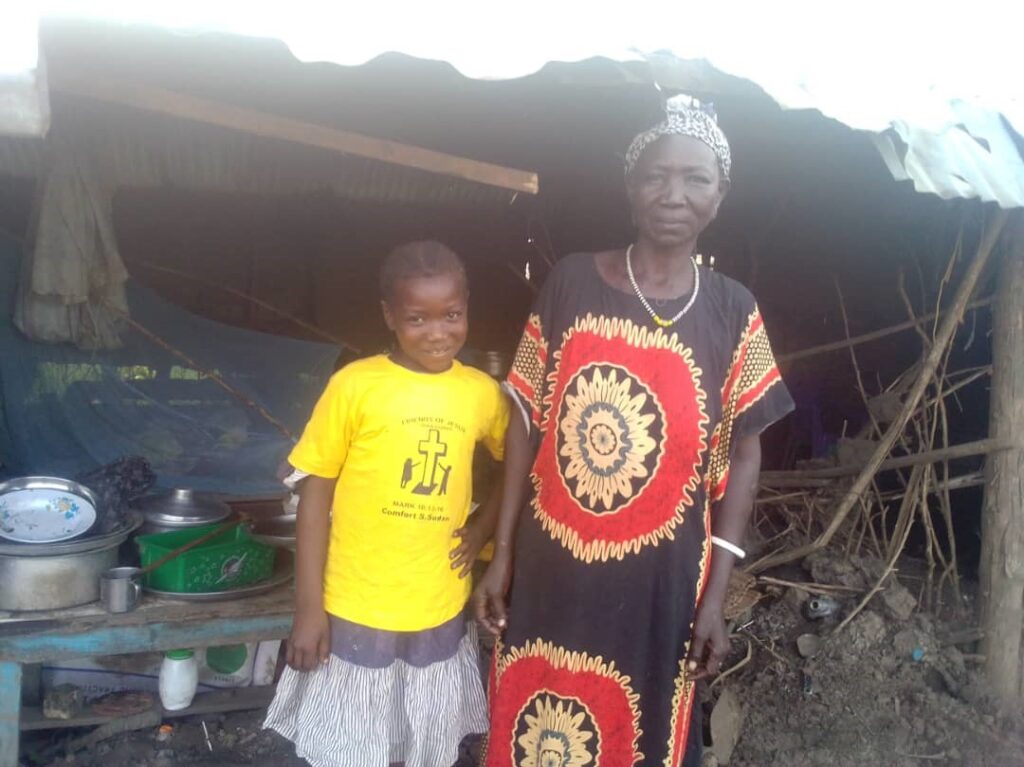
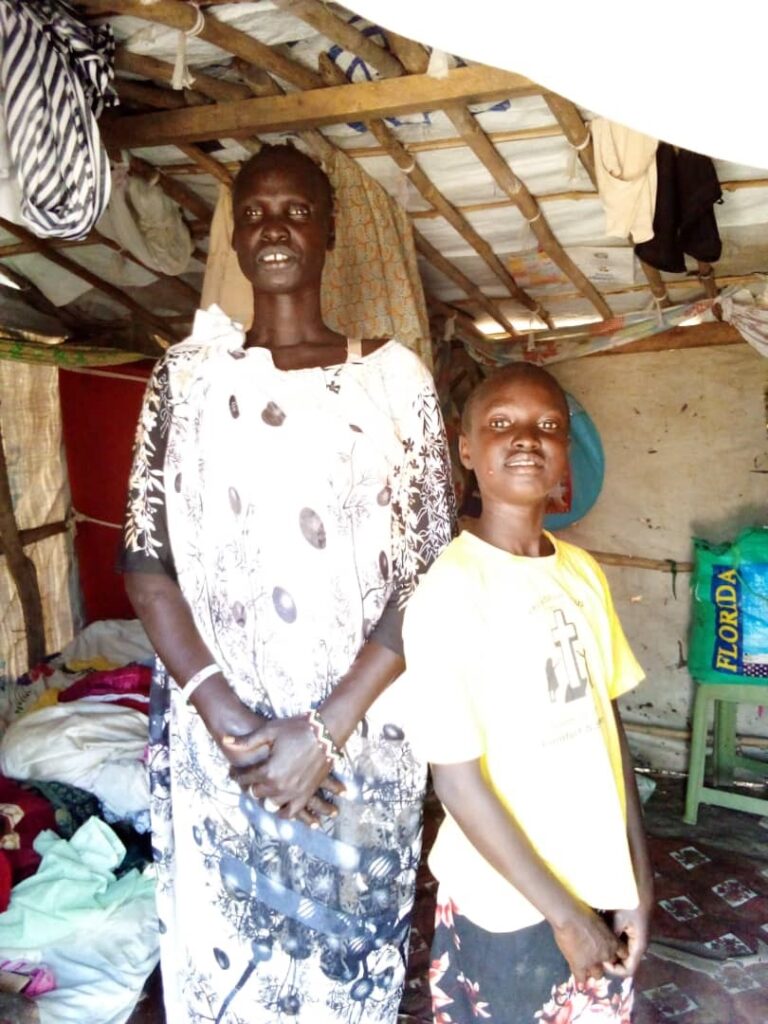
4) Health
Unicef considers that ‘South Sudan is one of the most challenging countries in the world for a child’ because of ‘poor access to health services and a limited number of health workers’. The project is working with what it considers to be the best health clinic in the area of Gumba. Children are able to receive adequate health care and all illnesses have been dealt with successfully.
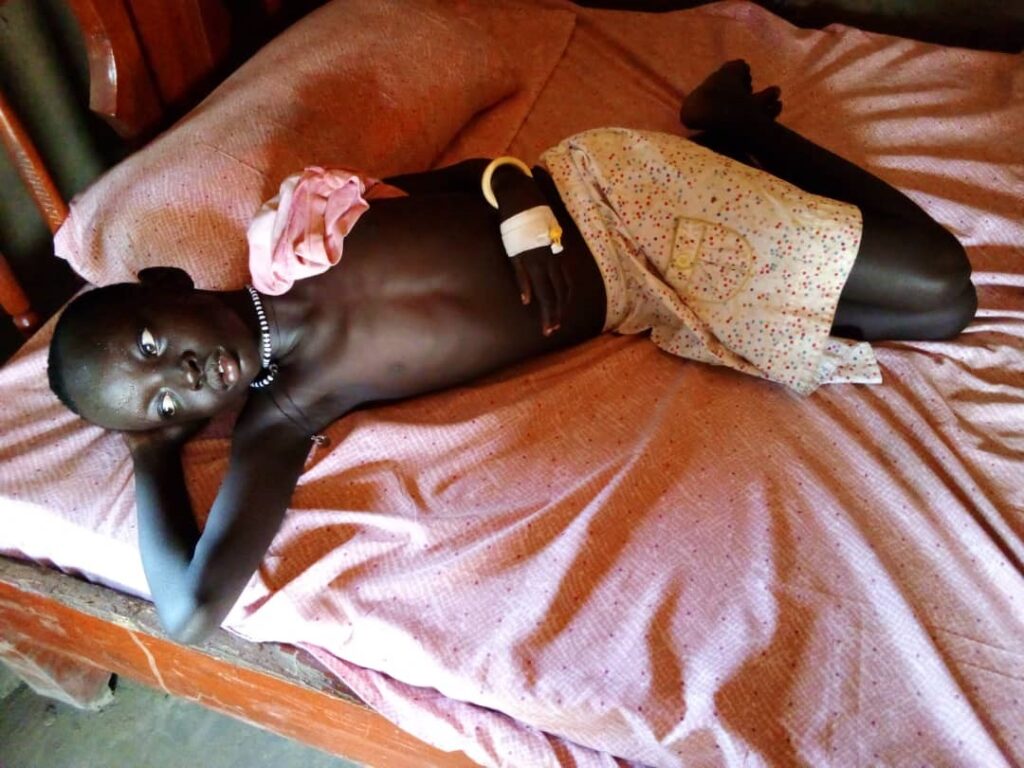
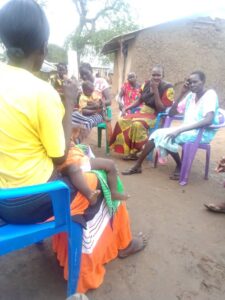
5) Relationships with parents/guardians
The project objective is to empower parents/guardians to be able to look after their children and generate income through income generating activities. Good progress was made with income-generating activities, although this was affected by Covid-19 lockdowns as well as losses incurred through property loss during floods/storms. However, in general, the parents/guardians are now very positive about engaging with the project and exploring means of making economic and social progress. The project now holds a guardian/parental meeting every fortnight (shown left), during which time solutions for presenting challenges can be discussed and support targeted. It is generally women who are most responsive to this and who take most responsibility for the children’s futures.
There continues to be considerable social disadvantage towards women in South Sudan and they are often expected to look after many children without any support from fathers. The support of these women is crucial to ensuring project children in their guardianship do not suffer and the project is working hard to provide this support.
Despite the many challenges faced by the team in South Sudan, we are incredibly encouraged by the perseverance and progress the team have maintained for the children on the project. We are delighted to see 2 children graduate from the project and we look forward to this continuing.
This has all been possible due to the continued generosity of sponsors who donate monthly to support one of the children on this project. It has also been supported by the Philip Henman Trust over the course of the last 3 years for which we are extremely grateful. If you would like to sponsor a child on the Juba Street Kids Project or any of the projects, you can find out more about sponsorship by clicking the link below:
a little can change a life
